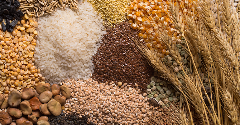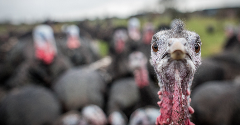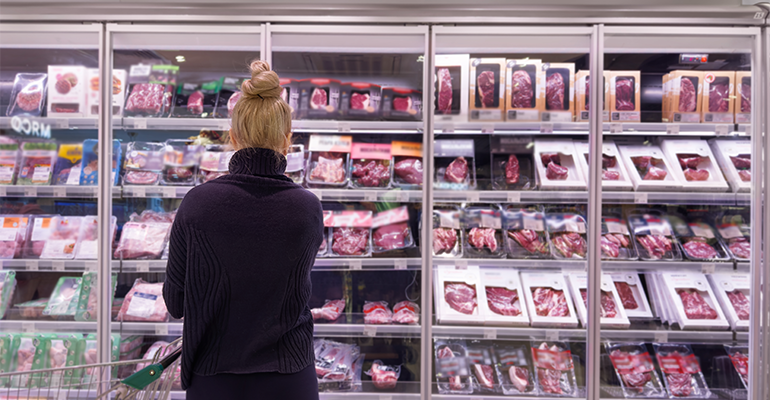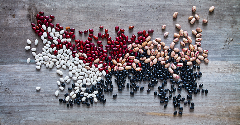News
Canadean reports on Russian savoury snacks
15 Sep 2016Currently, the average Russian man consumes savoury snacks less often than his female counterpart, presenting new opportunities for manufacturers, according to a new study published by consumer insight firm Canadean.

Currently, the average Russian man consumes savoury snacks less often than his female counterpart, presenting new opportunities for manufacturers to appeal to indulgence-seeking men, according to a new study - Consumer and Market Insights: Savoury Snacks in Russia - published by consumer insight firm Canadean.
The report states that the Russian savoury snacks market was valued at US$2.7 billion in 2015, and is forecast to grow at a rapid compound annual growth rate of 10.1% to reach US$4.3 billion by 2020.In Russia, men account for 43% of total savoury snack occasions, despite representing 46% of the population. On average, Russian men consume savoury snacks on 93 occasions per year, compared to 105 for females. However, for Veronika Zhupanova, Analyst at Canadean, there is reason for optimism: “The numbers show that while women are considered a wider audience, men represent a substantial market with genuine growth potential.”Canadean’s research reveals that while comfort food might traditionally be more associated with a female audience, it is men who are far more likely to turn to savoury snacks as a means of relaxing. Indeed, nearly 30% of the volume of savoury snacks eaten by men is driven by this, compared to 21% for women. Moreover, indulgence plays a more significant role for men compared to women, driving 39% of men’s consumption, and 28% of women’s consumption respectively. The implication is clear: snack manufacturers can appeal to males by engaging their pleasure-seeking side.Zhupanova explains: “While we have seen a number of savoury snack launches targeting men, current innovation is mostly unisex. In this way, indulgent snacks that are overtly masculine in design and positioning can stand out from the crowd.”By targeting Russian men, manufacturers face a tricky dilemma, Canadean believes. While the demographic reports being motivated by emotional cues like a desire for relaxation, men typically reject concepts that come across as being overtly emotive.Zhupanova continues: “There are several options available to manufacturers, such as dark-coloured packaging, larger “male” sizes, and claims such as “rich in protein”, which are all concepts that generally appeal to men more than women. Products such as nuts and seeds can more overtly target “masculine” occasions, such as restoring energy after a workout.”Related news

Sustainable grains present a healthy growth opportunity
3 Oct 2024
Food insights provider SPINS unveils the latest trends in the sustainable grains field, exploring how seven leading grains show healthy growth despite challenges in the global value chain.
Read more
New environmental food scoring standards emerge
30 Sep 2024
EIT Food and Foundation Earth collaborate to launch environmental food scoring for products entering the global supply chain.
Read more
Africa progresses with food transformation strategy
19 Sep 2024
Large-scale efforts are underway to drastically change the African food sector with a $61 billion (€55 bn) set of proposed transformation plans to be implemented across forty countries. Yet there are concerns that this initiative severely jeopardises s...
Read more
Diestel is first turkey producer to snag Regenifed certification
17 Sep 2024
In the US, Diestel Family Ranch, a family-owned turkey farming venture, has become the first producer to gain Regenified certification for its whole turkey and processed turkey product ranges.
Read more
Upside Foods sues Florida over cultivated meat ban
10 Sep 2024
In May, Florida became the first US state to ban cultivated meat's sale, manufacture, and distribution. Upside Foods, a cultivated chicken startup, has filed a federal lawsuit in response, arguing that the law is unconstitutional.
Read more
European consumers want more freedom to choose biotech-based food
3 Sep 2024
Survey findings point to growing levels of interest in cultivated meat as European consumers say they want the freedom to choose the lab-based products.
Read more
How alternative proteins could transform US agriculture and restore natural ecosystems
30 Aug 2024
As the US seeks new strategies to meet its environmental targets, a recent report from the Good Food Institute (GFI) and Highland Economics highlights the potential of alternative proteins to drive significant progress.
Read more
How insecure are our global food systems?
29 Aug 2024
Countries across the globe are struggling to secure safe and accessible food, according to recent reports.
Read more
Austria’s new dietary guidelines recommend less animal protein and more plants
23 Aug 2024
Austria's dietary guidelines have been updated to reflect health and climate parameters. Both an omnivorous food pyramid and a vegetarian version are included, marking the first time a separate pyramid for vegetarians is provided.
Read more
Will ‘foie gras’ become the EU’s first approved cultivated meat?
20 Aug 2024
French startup Gourmey has submitted its cultivated foie gras for approval in the European Union (EU), signalling the first application of its kind in the region.
Read more